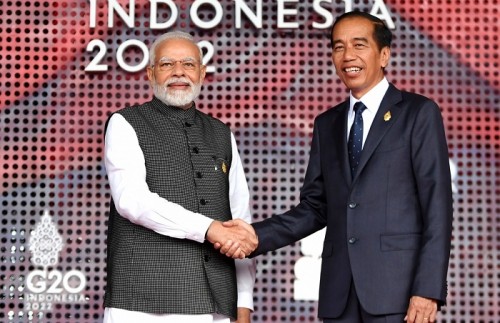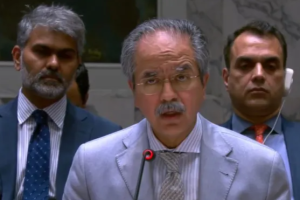At the Partnership for Global Infrastructure and Investment (PGII) event at the G20 Summit, President Joko Widodo of Indonesia and leaders of the International Partners Group (IPG) of like minded countries, co-led by the US and Japan, on Tuesday launched a Just Energy Transition Partnership (JETP) developed with Indonesia during its G20 Presidency.
The landmark partnership, comprising Canada, Denmark, the European Union, France, Germany, Italy, Norway, and Britain, pursues an ambitious and just power sector transition in Indonesia, supporting a trajectory consistent with keeping 1.5 degrees Celsius global warming limit within reach.
Indonesia will work, with support from international partners, to develop a comprehensive investment plan to achieve significant new targets and policies to reduce GHG emissions and support impacted communities by: Peaking total power sector emissions by 2030, shifting its projected emissions peak forward; Capping power sector emissions at 290 megatons of CO2 in 2030, down from baseline value of 357 MT CO2; Establishing a goal to reach net zero emissions in the power sector by 2050, bringing forward Indonesia’s net zero power sector emissions target by 10 years; and Accelerating the deployment of renewable energy so that renewable energy generation comprises at least 34 per cent of all power generation by 2030, which would roughly double the total renewables deployment over the course of this decade compared to current plans.
To achieve these targets, this long-term partnership intends to mobilise an initial $20 billion in public and private financing over a three-to-five-year period, using a mix of grants, concessional loans, market rate loans, guarantees, and private investments.
Contributions to the JETP include $10 billion in public sector pledges, and a commitment to work to mobilize and facilitate $10 billion in private investment from an initial set of private financial institutions coordinated by the Glasgow Financial Alliance for Net Zero (GFANZ), including Bank of America, Citi, Deutsche Bank, HSBC, Macquarie, MUFG, and Standard Chartered.
The partnership will also leverage the expertise, resources, and operations of the multilateral development banks.
A successful partnership is expected to help shift Indonesia’s power sector peaking date forward by approximately seven years and result in a cumulative reduction of more than 300 megatons in greenhouse gas emissions through 2030 and a reduction of well above 2 gigatons through 2060 from Indonesia’s current trajectory.
Over the next six months, the parties will work together to develop a concrete plan for investments, financing, and technical assistance to support these ambitious goals.
Indonesian President Joko Widodo said: “Indonesia is committed to using our energy transition to achieve a green economy and drive sustainable development. We are grateful for the cooperation and the support from our international partners to realise its full implementation that will accelerate this transition.
“This partnership will generate valuable lessons for the global community and can be replicated in other countries to help meet our shared climate goals through concrete collaborative actions.”
US President Joe Biden emphasised the importance of this partnership, saying: “Indonesia has shown tremendous leadership and ambition throughout the development of this partnership. The resulting new and accelerated targets demonstrate how countries can dramatically cut emissions and increase renewable energy while advancing a commitment to creating quality jobs and protecting livelihoods and communities.”

























Add Comment